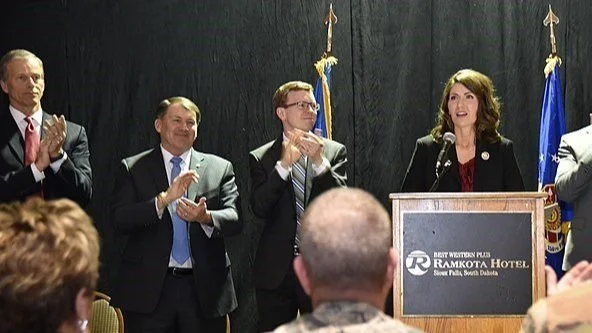Trump meets Saudi crown prince, keeps up his caustic, callous and dismissive attitude toward political violence
As we approach the one-year mark of Donald Trump's second stint in the presidency, Americans may be losing the ability to be shocked by the president’s caustic and callous attitude toward political violence.
Mohammed bin Salman, the Saudi prime minister and crown prince, recently visited the White House for a very cordial meeting with Trump. When a reporter had the temerity to question Trump about bin Salman's apparent involvement in the brutal assassination of Jamal Khashoggi, a reporter for the Washington Post, Trump bristled and expressed ambivalence, remarking that Khashoggi was a "controversial guy," which apparently made his killing somewhat acceptable.
After six Democratic members of Congress, all of whom are veterans, appeared in a video which encouraged current Service members to disobey illegal orders, Trump reacted by accusing them of seditious behavior punishable by death.
Sen. Mark Kelly of Arizona, a former astronaut, and Sen. Elissa Slotkin of Michigan., a former analyst for the CIA, and four House members did not specify which illegal orders they had in mind, but speculation centered on American air strikes on boats from Venezuela and Colombia which were suspected of transporting illegal drugs, and harsh racial targeting of brown-skinned and Spanish-speaking people in large American cities, who are suspected of being undocumented immigrants.
Predictably, Trump's remark that his congressional antagonists were guilty of "seditious behavior, punishable by death!" was followed by a flurry of death threats against the alleged traitors, and they needed to increase their security. Kelly is no stranger to political violence, since his wife Gabby Giffords was gravely wounded by a shooter when she was serving in Congress prior to his brave decision to enter the political arena.
Chuck Schumer, the embattled Senate minority leader from New York, remarked that Trump's recent statement amounted to "lighting a match in a country soaked with political gasoline."
Unfortunately, Trump's extreme rhetoric against these members of Congress was not an isolated incident. After his falling out with Mark Milley, who had served as Chair of the Joint Chiefs of Staff, Trump accused Milley of treason, saying, “in times gone by, the punishment would have been DEATH!,” a statement that sparked an increase in his security detail.
Rep. Marjorie Taylor Greene of Georgia, who has been a vocal Trump supporter since she entered Congress, incurred Trump's wrath when she signed a discharge petition concerning sex offender Jeffrey Epstein's files, and he turned on her by describing her as a "traitor to our country." (Greene has subsequently announced her resignation from Congress.)
After the Jan. 6, 2021 insurrection and his departure from the Presidency, Trump posted Barack Obama's home address on social media, after which a heavily-armed participant in the uprising was apprehended down the street from Obama's residence.
Mohammed bin Salman, the Saudi prime minister and crown prince, recently visited the White House for a very cordial meeting with Trump. When a reporter had the temerity to question Trump about bin Salman's apparent involvement in the brutal assassination of Jamal Khashoggi, a reporter for the Washington Post, Trump bristled and expressed ambivalence, remarking that Khashoggi was a "controversial guy," which apparently made his killing somewhat acceptable.
Trump's callous and caustic behavior has had a trickle-down effect. When a Minnesota assassin began killing and targeting liberal Democratic politicians in that state, Sen. Mike Lee of Utah dismissed the violence on social media, saying, “This is what happens when Marxists don’t get their way.” Lee termed it a "nightmare on Waltz Street," misspelling the name of Minnesota Gov. (and recent vice-presidential candidate) Tim Walz. Lee was much more agitated when the young right-wing icon Charlie Kirk was brutally murdered in his own state of Utah.
Here in South Dakota, there is a politician who could do something to discourage escalating rhetoric that promotes and condones the murder of public figures on the other side. Of course, that politician is John Thune, who is currently the majority leader of the Senate. When Mike Lee joked about the Minnesota assassinations, Thune could have asked him to resign from the Senate, and if that didn't happen, he could have led a bipartisan censure resolution. Thune could have taken strong steps to assert basic decency and to condemn colleagues who support political violence. He could speak out forcefully against the suggestion by the president of his party that Senate and House colleagues should be executed. These would be minimal steps for the leader of the Senate to take, but don't hold your breath.
Jay Davis is a retired attorney in Rapid City
Photo: President Trump meets Mohammed bin Salman at White House last week, public domain, wikimedia commons
The South Dakota Standard is offered freely and is supported by our readers. We have no political or commercial sponsorship. If you'd like to help us continue our mission to advance independent political and social commentary, you can do so by clicking on the "Donate" button that's on the sidebar to your right.







